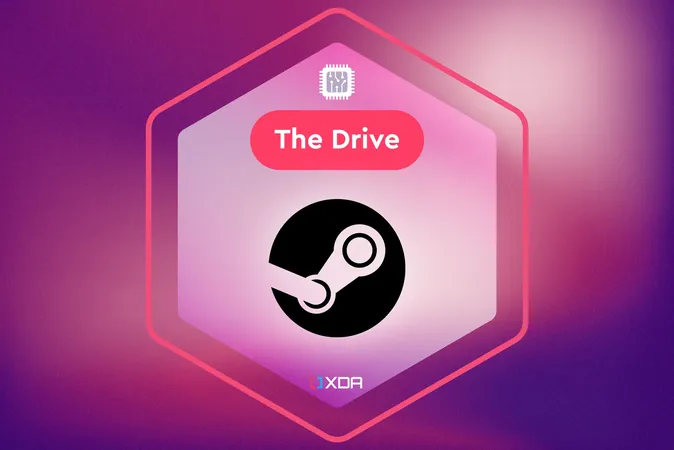
How Valve's Steam Revolutionized the Gaming Industry: A Deep Dive into Its Impact and Legacy
2024-12-22
Author: Wei Ling
The Genesis of Steam and Its Evolution
Valve, founded by ex-Microsoft employees Gabe Newell and Mike Harrington, made a significant impact on the gaming landscape with its inaugural title, Half-Life, in 1998. The critical acclaim of Half-Life set the stage for Steam, designed initially to streamline game updates. However, its forced integration with Half-Life 2 in 2004 marked a pivotal moment in its transformation from a patching service into a fully-fledged storefront enabling purchases, downloads, installations, and game launches all within hours.
The introduction of third-party support with titles like Rag Doll Kung Fu helped broaden Steam's game library and enhance its utility for gamers worldwide. The accessibility of digital games over physical copies swiftly gained traction, with players admiring the ability to explore vast libraries and snag enticing deals—something that was truly revolutionary in the digital age.
A Rollercoaster Journey of Challenges
Despite its success, Steam faced numerous hurdles, particularly concerning quality control. The introduction of the Steam Greenlight program aimed at empowering developers fell short, leading to an avalanche of low-quality submissions, much to the frustration of both developers and players. Valve eventually scrapped this system, simplifying the process but also raising concerns about game quality.
Competitors have emerged over the years, such as EA's Origin, Ubisoft's Uplay, GOG Galaxy, and Epic Games Store, each attempting to carve out a slice of the gaming market. Despite these efforts, Steam's sheer library size, regular sales, and community features have allowed it to remain ahead. Some publishers have even reverted their titles back to Steam, further cementing its dominance.
The Digital Ownership Debate
A significant drawback of using Steam is the question of digital ownership. Gamers essentially rent access to their libraries, relying on Valve's continued support. In a world where digital platforms can vanish overnight or change their terms, this situation raises legitimate concerns. Moreover, nested launchers for certain games can complicate the user experience, leading to what some term “launch-ception.”
Yet, despite these issues, Steam has been a miraculous boon for PC gaming, uniting players in a vibrant community while providing an easy avenue for discovering new games.
Why Gamers Stick with Steam
Gamers remain loyal to Steam for several reasons. Its extensive sales events, robust performance across platforms—including Linux—and a library teeming with modern hits and nostalgic classics keep users engaged. Although other platforms like GOG cater better to vintage titles, Steam's reliability and user-friendly experience make it a household name in gaming.
As the landscape evolves, Valve continues to keep pace by embracing innovations like the Steam Deck and compatibility layers like Proton to enhance gaming accessibility. The platform's ongoing adaptability captures the ever-changing needs of a passionate gaming community.
Conclusion
In conclusion, Valve's Steam has not just changed how we purchase and play games; it has fundamentally altered the gaming landscape, establishing a model that others strive to replicate. As it celebrates over two decades of operations, one thing is certain: the legacy of Steam is far from over. Will it continue to dominate, or could a new challenger one day dethrone the king of digital downloads? Only time will tell!




 Brasil (PT)
Brasil (PT)
 Canada (EN)
Canada (EN)
 Chile (ES)
Chile (ES)
 Česko (CS)
Česko (CS)
 대한민국 (KO)
대한민국 (KO)
 España (ES)
España (ES)
 France (FR)
France (FR)
 Hong Kong (EN)
Hong Kong (EN)
 Italia (IT)
Italia (IT)
 日本 (JA)
日本 (JA)
 Magyarország (HU)
Magyarország (HU)
 Norge (NO)
Norge (NO)
 Polska (PL)
Polska (PL)
 Schweiz (DE)
Schweiz (DE)
 Singapore (EN)
Singapore (EN)
 Sverige (SV)
Sverige (SV)
 Suomi (FI)
Suomi (FI)
 Türkiye (TR)
Türkiye (TR)
 الإمارات العربية المتحدة (AR)
الإمارات العربية المتحدة (AR)